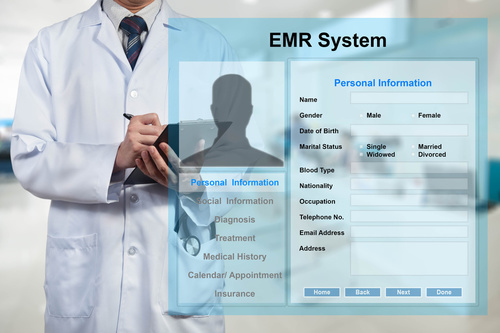There is general agreement in the healthcare field that Electronic Medical Records (EMR) will eventually enhance quality of care, achieve cost savings, and improve the patient experience. But, so far as consumers are concerned, the general feeling is… “are we there yet?” Have the benefits of EMR trickled down to the point where patients understand what all the fuss is about?
In my role as a qualitative researcher hired by hospitals, healthcare systems, and insurance providers for the past 20+ years, I have had a front row seat for discussions about healthcare. While so much in the sector has changed, consumers’ expectations for how they will be treated, and their satisfactions and disappointments, have remained constant.
Undoubtedly, most consumers are aware of EMR adoption; haven’t we all had the experience within the last few years of being asked to be patient (no pun intended) while our providers transition? Of filling out lengthy healthcare forms which will be attached to our medical records? Of periodically updating acknowledgement of HIPAA policies? Many of us even use hospital portals to communicate with our physicians, make appointments, request prescription refills, and see test results.
So overall, what has been the impact of EMR on the patient experience?
In the positive column, many consumers are aware of, and have come to appreciate, the benefits of having a centralized healthcare record that all providers within a system can refer to. It is efficient (fewer questions when seeing a new provider within the same system), and makes people feel safe (“they know my medical history”) and cared for. Having experienced these benefits, patients are more likely to request and accept referrals to providers within the same system. In the words of one focus group participant…
“No matter what location you go within (health system), they can see your records…and then I can go into the portal and see all of my records from every location (within the health system) that I have been to.”
Have any other benefits of EMR trickled down to patients? In our experience, not so much. In focus groups, interviews and surveys, consumers continue to tell us about the delays and glitches in healthcare communication and service that providers blame on their EMR conversion processes. Additionally, lots of emergency rooms – even those connected to providers that consumers often use for their healthcare – still don’t have access to full patient records. The need to gather health information in the ER from patients and families reduces efficiency and exacerbates stress – definitely not consistent with a better healthcare experience. And finally, we hear a lot of complaints from people who say, “my doctor spends most of the appointment on the computer, and doesn’t even look at me while talking.”
In sum, while EMR is no doubt here to stay, at this point in time, many of its advantages remain elusive to those who it is supposed to help the most: patients. Hopefully the next time I write about this topic, when consumers ask “are we there yet?”, the answer will be, “we’re getting closer.”
For more information please contact Elizabeth Cohen at [email protected]/215-545-0054 ext. 103

